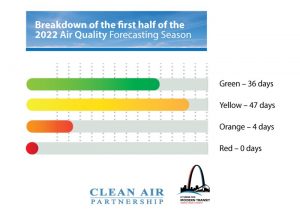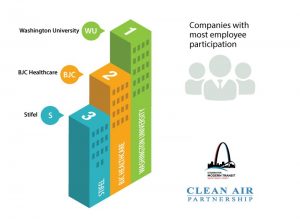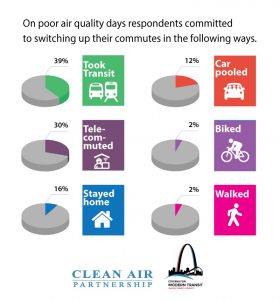Midwest Recycling Center (MRC) is the premiere destination for community and residential recycling in Missouri, Illinois and the surrounding areas. With four facilities conveniently centrally located in the United States, MRC provides its clients with electronics recycling services, Information Technology Asset Disposition, Medical and Lab Asset Disposition, and Data Destruction Services, with the goal of properly diverting electronic waste from landfills while offering suitable solutions to the ongoing issues of identity theft and environmental liability.
MRC was proud to participate in the 2021 St. Louis Green Business Challenge, which has contributed to the organization’s overall sustainability efforts over the years and continues to be a valuable resource for them. In 2021, MRC earned the esteemed title of Challenge Champion for completing work with the Leader scorecard and committing to continued implementation of deeper sustainability strategies.
“MRC is committed to promoting sustainable practices in our work with other Challenge participants, businesses and communities throughout the St. Louis region,” said Greg Cooksey, Director of Business Development and Compliance Officer at MRC. “We hold ourselves accountable for the environmental impacts of our business and advocate for R2 Certified responsible electronic recycling. I am proud of our Green Team and all our associates, who work hard every day to deliver a high service level to all MRC customers.”
Among MRC’s impressive accomplishments to receive recognition in the Challenge was the servicing of more than 100 recycling events combining e-Waste and document destruction. Following the mantra of “Reduce, Reuse, Recycle,” MRC either de-manufactures items collected down to a component level or finds a home for the item to be reused. Since reuse is the most environmentally friendly form of recycling, MRC tries to reuse items in the form of parts or as a working unit, as long as the client does not require the item be destroyed. To prevent any possibility of data mining, MRC also uses a data wiping system that serializes and generates a certificate of destruction for all recycled drives. Any hard drives that fail the wiping procedure or are unable to be discovered by the system are put through MRC’s shredder or degausser to make sure that customer data is completely irretrievable.
Once all recycled material is broken down to a component level, such as steel, aluminum, plastic, lead, etc., it is then shipped to an EPA and R2/RIOS approved facility to be shredded and separated further. The raw material is then melted or smelted and recycled back into a new product. Since MRC is registered with the Environmental Protection Agency (EPA) and is Level 4 registered with the Missouri Department of Natural Resources, the company has a zero-landfill policy, meaning that none of the material will end up in a hazardous landfill which is also a positive for the region’s air quality.
The Clean Air Partnership is delighted to recognize the efforts of companies such as Midwest Recycling Center that continue to take action for cleaner air by channeling their time and energy towards practicing sustainability. For additional information on how your company can get involved in the St. Louis Green Business Challenge, subscribe to their weekly E-Newsletter or visit www.stlouisgreenchallenge.com. To learn more about the link between sustainability and air quality, explore our website, like us on Facebook or follow us on Twitter at @gatewaycleanair.





